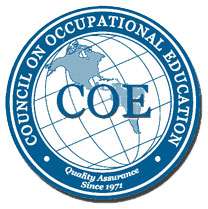Vocational Nursing
How to Stand Out in the Field of Vocational Nursing
Did you know that healthcare careers are projected to grow by 13% in the next decade? That’s a massive jump in demand for healthcare professionals!
If you’re interested in pursuing a career in healthcare, there’s no better time to start than now. And if you’re looking for a quick path to a fulfilling nursing career, then vocational nursing might just be the perfect fit for you.
In this article, we’ll explore the exciting world of vocational nursing, including the benefits of pursuing a career in this field and how you can stand out among the competition. So, let’s get started!
Choose the Right Education Path
To start a nursing career, you need the right education. Vocational nursing is an excellent option for individuals who want to enter the nursing field quickly.
At vocational or technical schools, you can complete a program in as little as 6 weeks to 24 months. These programs offer the necessary courses and hands-on experience to prepare you for a nursing career.
Continuing Education
Continuing education is essential in any healthcare career. The healthcare industry is continually evolving. This means nurses must stay up-to-date with the latest medical practices and technology.
Vocational nurses can increase their skills and knowledge by taking additional courses or pursuing advanced degrees. This can lead to career growth and more significant earning potential.
Specializations
Nurses can also develop specializations to increase their value in the job market. These specializations can range from geriatric care to critical care nursing, among others. By specializing in a particular area, nurses can:
- Become subject matter experts
- Increase their earning potential
- Gain new career growth opportunities
Networking
Networking is crucial for career success in any field, including nursing. To meet other professionals in the field, nurses can:
- Join professional organizations
- Attend conferences and seminars
- Participate in nursing forums
Networking provides opportunities to learn about the latest industry trends and can lead to job offers or career growth opportunities.
Job Placement Services
After completing a vocational nursing program, job placement services can help new nurses find employment in their chosen field. Many schools and organizations offer job placement services, including:
- Resume building
- Interview coaching
- Job search assistance
By taking advantage of these services, new nurses can increase their chances of securing a job in vocational nursing.
Stand Out in the Field of Vocational Nursing: Your Path to Career Success
Pursuing a career in vocational nursing can be an excellent choice for those seeking a rewarding healthcare career with plenty of job opportunities. By going above and beyond in your education, training, and work experience, you can stand out among the competition and increase your chances of career growth and success. So, whether you’re just starting your journey or looking to take your career to the next level, remember that there’s always room for growth and improvement in the field of vocational nursing.
Are you ready to take the first step? Consider enrolling in a fast-track program like the one offered by Healthcare Career College to become a licensed vocational nurse in as little as 14 months. Contact us today to get started on your path to success!



